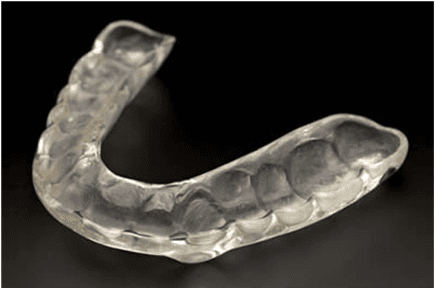Protecting your Teeth with Custom Made Dental Splints
Dental splints (Occlusal splint) offer a protective solution for various conditions, including bruxism and TMJ disorders. These custom-fitted devices stabilize your teeth, providing relief from discomfort and preventing further damage.
Teeth splints, also known as dental splints or occlusal splints, are custom-made devices designed to address several dental issues, including teeth grinding (bruxism), temporomandibular joint (TMJ) disorders, and other conditions that require the stabilization of the jaw or teeth. By holding the teeth in a specific position, splints can alleviate stress on the jaw, reduce pain, and prevent wear on the teeth.
Benefits of Using Teeth Splints
Protection Against Grinding: Prevents the wear and tear on teeth from bruxism.
Alleviation of TMJ Symptoms: Helps in reducing jaw pain and discomfort associated with TMJ disorders.
Improved Oral Health: By preventing damage, splints contribute to the long-term health of your teeth and gums.
Custom Fit: Tailored specifically to your mouth for comfort and effectiveness.
The Process of Getting a Dental Splint
Comprehensive Evaluation: An assessment of your dental and jaw health to determine the need for a splint.
Impressions: Taking precise impressions of your teeth to create a splint that fits perfectly.
Fitting and Adjustment: Ensuring the splint fits comfortably, making any necessary adjustments for optimal effectiveness.
Follow-Up: Monitoring your progress and making adjustments as needed.
Types of Dental Splints
Soft Splints: Made from a softer material, ideal for mild cases of bruxism.
Hard Splints: More durable, designed for severe bruxism or TMJ disorders.
Hybrid Splints: Combine soft and hard materials, offering comfort and durability.
Caring for Your Dental Splint
Clean your splint daily with a soft brush and mild soap or a cleaner recommended by your dentist.
Store it in a protective case when not in use.
Bring your splint to your dental appointments for inspection and cleaning.
Conclusion
If you're experiencing discomfort due to teeth grinding, TMJ disorders, or need stabilisation for your teeth, a custom dental splint might be the solution you need. Contact us to schedule an evaluation and find out how a dental splint can improve your oral health and comfort.
FAQ
helping you make informed decisions about your oral health.
How long do I need to wear my dental splint?
Can I wear a dental splint all the time?
Will wearing a splint affect my speech?
Are dental splints noticeable?
How often should my splint be replaced?
